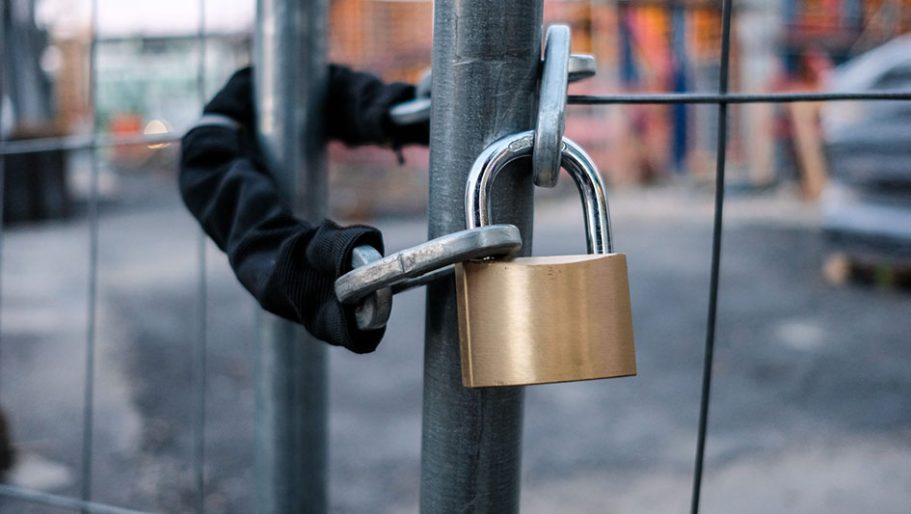A construction site closure can happen even with the best COVID precautions and safety plans in place. That was the case for Syncra Construction when their Gateway Residences project at Park Royal in West Vancouver was issued a closure notice.
Gateway Residences is a $110 million mixed-use development, comprised of two concrete towers and an underground parkade. More than 200 workers were working on the site.
“We were up-to-date with protocols for COVID…making sure our workers are safe when this particular site was closed. I was concerned because if a site like this gets closed because of perceived COVID spread, the industry is in trouble,” said Richard Shipway, project director at Syncra and Vancouver Regional Construction Association (VRCA) chair.
The site closure and key lessons learned was the topic of a virtual town hall hosted by the VRCA and moderated by Chris Atchison, BCCA president.
“When Richard reached out for assistance, we mobilized the support of our network and our network responded with urgency as there are fewer critical matters than a complete site closure,” said Atchison.
The construction industry was designated an essential service last year at the start of the pandemic. But that doesn’t give the sector special rights, cautioned Shipway. “We have to be safe.”
The details and timeline of the site closure were discussed by Syncra superintendent Steve Allen. Aware of the spike in public cases of COVID in March, Syncra took extra steps to ensure their safety plan was in compliance including restricted access through one gate, QR check in and proper masks. “Our COVID compliance was in the 95-98 percentile so we were very happy with the compliance and the effort the guys were making to try to follow the protocols,” said Allen.
The first positive case on the site occurred in April which led to a number of new cases and were reported to Vancouver Coastal Health (VCH) and WorkSafeBC. Affected workers were asked to self isolate but there was a lot of confusion and lack of clarity from VCH, said Allen, resulting in VCH eventually ordering all workers be removed from the site.
Completely new crews were then brought onto the site after a deep clean of both towers. “We thought we were in good position to continue working. Unfortunately VCH issued a closure order for 10 days. No advance notice, no explanation. It was just you’re closed,” said Allen.
The challenge for Syncra was how to reopen the site. The order came with a number of conditions that had to be met. After following through on the order with an enhanced safety plan, Syncra asked for reconsideration of the closure which was denied. “That raised a serious issue. There’s no mechanism for reconsideration. You are not allowed to reopen until [given] a clean bill of health,” said Allen, noting the closure could have been more than 10 days.
In the end, with the assistance of VRCA and BCCA including COCA and BCCSA, the order was rescinded before the 10 days. “When the order was rescinded, they also issued the first code for construction vaccination, so that was a positive outcome that’s benefitted the whole industry,” said Allen.
He stressed that the site closure experience illustrated communication with VCH and WorkSafeBC is critical. “You have to make sure you’re communicating with both. They have different priorities. We got through this quickly because we were forthcoming with information and were always proactive,” said Allen. “We’ve had no new cases.”
Dave Baspaly and Grant McMillan from COCA acknowledged Syncra’s leadership in resolving the site closure and sharing their experience. In addition to being proactive about safety and reaching out for support, they both stressed the best way to prevent widespread infections on sites is through vaccinations and rapid testing.
“To date, we have 50 cases in our sector… out of 250,000 workers. That’s pretty impressive. The challenge we have is we know cases are coming onto sites from community spread,” said Baspaly. “It just takes an outbreak…to jeopardize our essential service status. Talk to your workforce about vigilance outside of the site.”
McMillan cautioned that social media is spreading myths and trying to “scare people about vaccinations”, citing 15-20 per cent in construction do not want vaccination. “Science has shown us vaccinations work. Vaccination hesitation will lead to more deaths. The best way to protect ourselves is with vaccinations. One of the ways of eliminating the problems that we’re facing with COVID is with rapid testing for our industry.”
Baspaly said an announcement is expected shortly about fast tracking rapid testing for the industry. “Construction will be able to access the supply chain directly for free testing kits and integrate them into health and safety plans on site. It’s another tool in the tool box.”
“The faster the workforce is vaccinated, the faster we can demonstrate we’re the safest industry and the faster we can get out of this,” he said. “Encourage workers to get vaccinated.”
Cheryl Mah is managing editor of Construction Business.










